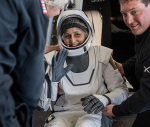You are here
Saudi health minister says working with WHO to fight MERS
By Reuters - May 28,2014 - Last updated at May 28,2014
RIYADH — Saudi Arabia is working with international scientific organisations to improve its response to a deadly new virus that has killed 186 people in the kingdom, its acting Health Minister Adel Fakieh told Reuters on Wednesday.
Fakieh’s comments, in a written statement, were in response to a Reuters Special Report last week that quoted international scientists expressing frustration at Saudi Arabia’s handling of Middle East Respiratory Syndrome (MERS).
“We have been working with respected international organisations such as the World Health Organisation (WHO) and Centre for Disease Control (CDC) to develop policies and put in place the necessary arrangements, such as case definition and guidelines specifically for MERS, that are on par with international standards,” he wrote.
“Our commitment is to continue this international collaboration past this current global challenge,” he added. It has killed around 30 per cent of sufferers and has caused fever, coughing and sometimes fatal pneumonia.
MERS was identified in 2012 in Saudi Arabia, which has had most cases although it has also been found in countries including the United States, Britain, France and Iran. A total of 565 people have been infected in Saudi Arabia.
Fakieh did not directly address in his statement allegations by scientists quoted by Reuters that Saudi authorities had rejected offers of help by international organisations.
However, Deputy Health Minister Ziad Memish last week told Reuters by e-mail he was “surprised” at the allegations, said the kingdom’s response had been “nothing but collaborative”, and pledged to continue involving more international partners.
New MERS infections soared in April and early May after outbreaks centred around hospitals in Riyadh and Jeddah, and on April 21 King Abdullah replaced former minister Abdullah Al Rabeeah with Fakieh.
However, the rate of infection has slowed since mid-May. After two days with no new confirmed cases, there were three on Wednesday, the health ministry said.
“The country has been strengthening infection control measures and other measures related to MERS and this may be an explanation to the recent lull in cases,” WHO spokesman Glenn Thomas told Reuters.
Tougher infection control
Fakieh said he met WHO Director General Margaret Chan last week and wanted to ensure the response to the crisis was addressed by sharing knowledge and best practices.
He said all Saudi healthcare facilities had been given new guidelines this month to combat the spread of the disease.
“This includes guidance on how to deal with suspected and confirmed MERS cases. It also covers advice on how to contain the virus both in hospital and in the community. This will ensure that the healthcare sector across the kingdom is working with the most updated international standards,” he said.
So far evidence points to camels as a possible infection source, but most cases in April and May have occurred through human-to-human transmission, many of them in hospitals.
A surge of public criticism of the health ministry on social media before Fakieh was appointed focused on a perceived lack of transparency, and led to accusations by some Saudis that the authorities were not taking the outbreak seriously.
“Public safety is of utmost importance for the Saudi ministry of health,” he said. He said the ministry published more extensive information than before in daily MERS bulletins on its website as part of a commitment to transparency.
The ministry has launched a public awareness campaign on social media, television and radio inside the country urging Saudis to adopt more rigorous personal hygiene and take additional precautions with camel products.
Related Articles
Scientists lack proof that camels are the source of a deadly new virus that has killed 186 people in Saudi Arabia and should widen their hunt to other animals, veterinary experts meeting in Paris said.
Saudi Arabia will test camels in the kingdom for Middle East Respiratory Syndrome (MERS), its agriculture minister was quoted as saying, a day after a Saudi study reinforced a long-suspected link between the animals and human cases of the deadly virus.
Saudi Arabia is seeing "sporadic" cases of the Middle East Respiratory Syndrome coronavirus (MERS-CoV), which has killed 324 people in the country, the health ministry said Thursday.















